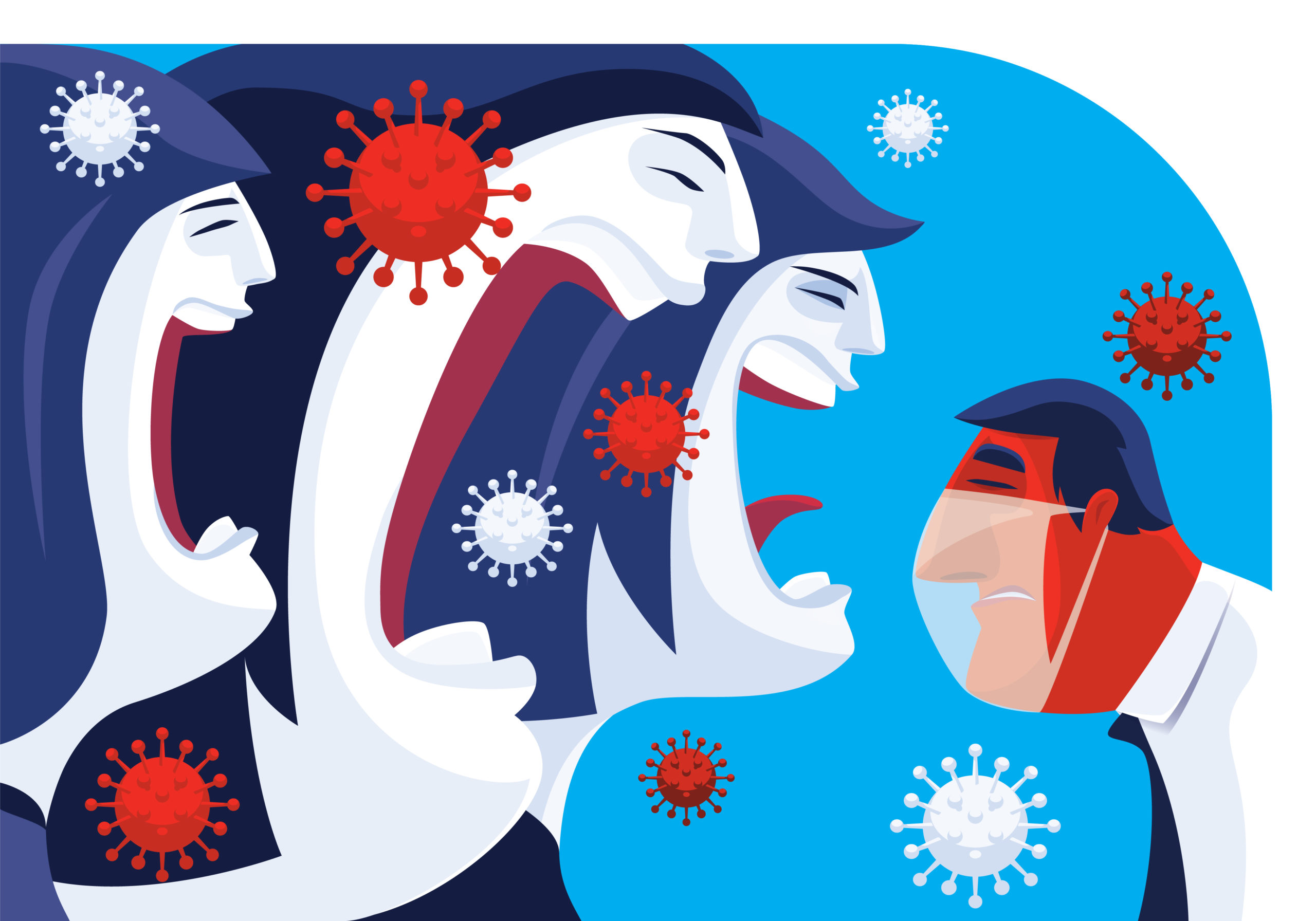Nathan Gardels is the editor-in-chief of Noema Magazine.
It is always dangerous to apply selective lessons from biology to politics. And it is just as bad an idea to apply inapt political principles to biology.
Translating Charles Darwin’s crudely grasped evolutionary scheme of survival of the fittest to politics is what hatched the Nazi notions of racial superiority, eugenics and the ethnic cleansing of the Holocaust. What this reading of biology conveniently left out was the larger design of living systems: the tendency of every organism to seek homeostasis — a stable equilibrium among manifold physiological conditions — in order not just to survive, but to thrive. We now understand this on a planetary scale. An interdependent diversity of species and ecosystems is what maintains the temperate balance of a favorable climate that allows life on Earth to flourish.
The anti-maskers of the West also dismiss this quality of interdependence by dogmatically insisting on the political ideal of personal liberty in the face of a contagious pandemic that recognizes no such corporeal boundaries. “Give me liberty or give me COVID” seems to be the misguided rallying cry of society’s most irresponsible members.
What cannot go unremarked in reflecting on this madness is the pattern of difference emerging between East and West. Taiwan, Japan, South Korea, Vietnam, Singapore and China are all (so far) getting the relentless pandemic mostly under control. While the political systems of these nations range from Communist Party autocracy to soft authoritarianism to democracy, they all share one feature in common: a relational culture grounded in the still-resonant echoes of Daoism, Confucianism, Buddhism and Shintoism.
In each of these religious or ethical systems, as I note in an essay titled “The New Axial Age” in Noema, being is situated in a matrix of nature and mutual interaction with others. In Japanese, the word “ningen,” often mistranslated as “person” in the Western sense of the individual, derives from its original meaning of “between people” that came from Confucianism.
Relational cultures get it: We are all in the same boat and will sink or swim together.
Those countries doing best in the West are largely the northern European welfare states, which could be considered a form of relational culture. High social trust, especially in the relatively homogenous Nordic nations, is the result of an encompassing safety net through which people understand it is in their interest to take care of each other. The further this relational reasoning recedes before the siren call of laissez-faire individualism elsewhere in the West, the worse that country is doing fighting COVID. The U.S. is exhibit one.
It is not unusual, in people or in nations, that a key strength in one set of circumstances can also be the chief weakness in another. What most fosters the creativity and innovation that advances a society can be the same characteristic that undermines the self-restraint and solidarity that would save it from doom.
In his contribution to Noema, Tobias Rees suggests that the latest discoveries of the ways of nature are debunking the old 17th-century ideas of science that set man apart from nature. He thus sees a shift taking place from the human-centered hubris of the Anthropocene to a humbler Microbiocene Age in which humans understand their place as only one among many players in the biological universe. For Rees, this also must mean a new relational conception of politics.
Isaiah Berlin, the great pluralist philosopher and author of the seminal essay “Two Concepts of Liberty,” once told me an apocryphal tale that seems to fit those who today would imagine that libertarian politics is somehow meaningful against the tyranny of spreading microbes. The story is about the rebellious “cry for room,” whatever the costs, that he believed was part and parcel of human nature, at least as seen through his Western eyes.
As Berlin recounted it, to punish one of his wives for a misdeed, a sultan ordered her sealed, with her son, in a barrel. The sultan set them afloat at sea to meet their fate. “After several days the son said to the mother, ‘I can’t bear being cramped. I want to stretch out.’ ‘You can’t,’ she responded, ‘you’ll push out the bottom and we’ll drown.’ Several days later, the son protested again, ‘I long for room.’ The mother said, ‘For God’s sake, don’t do it, we’ll drown.’ The son then said, ‘So be it, I must stretch out, just once, and then let it come.’ He got his moment of freedom, and perished.”





